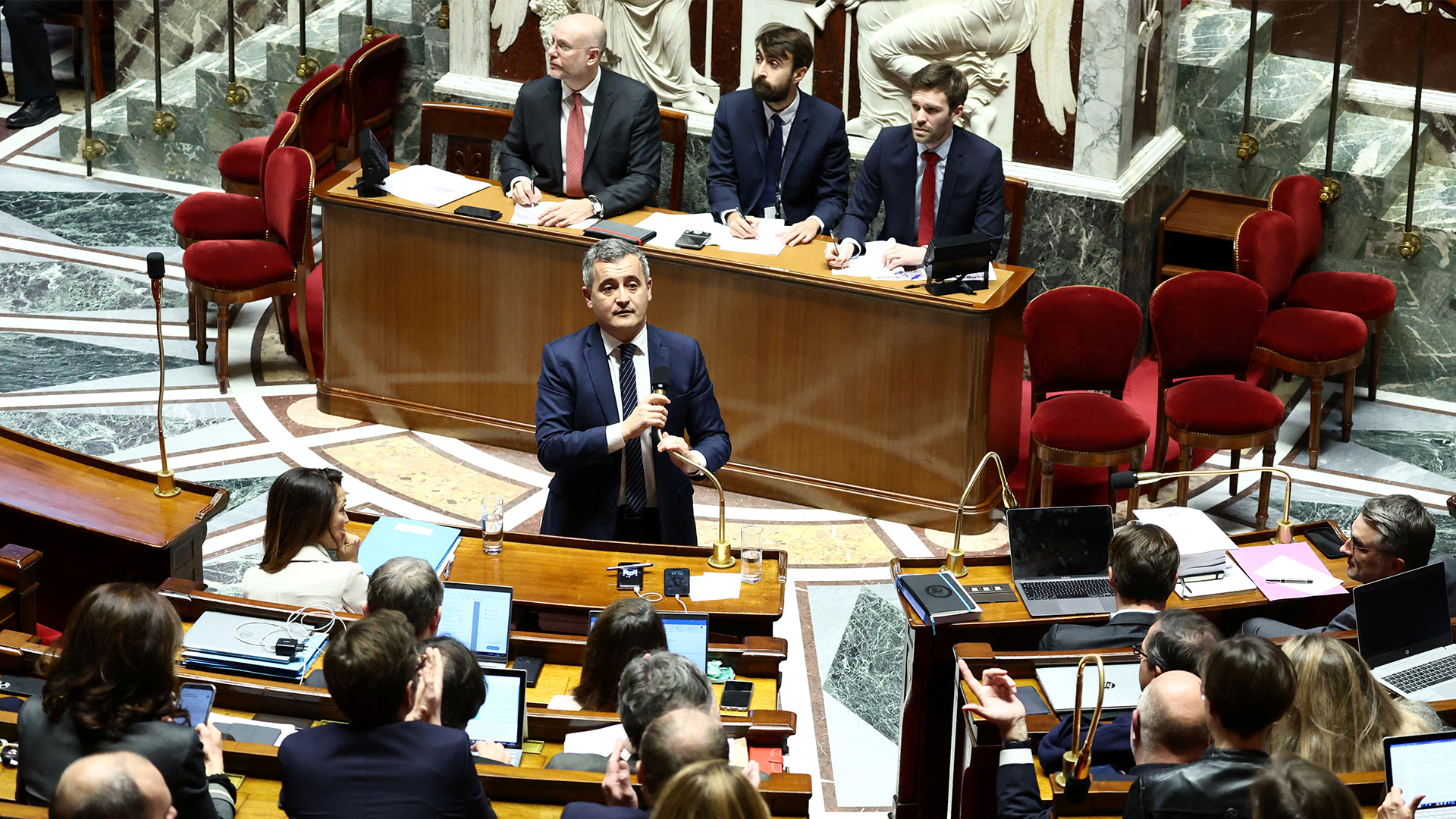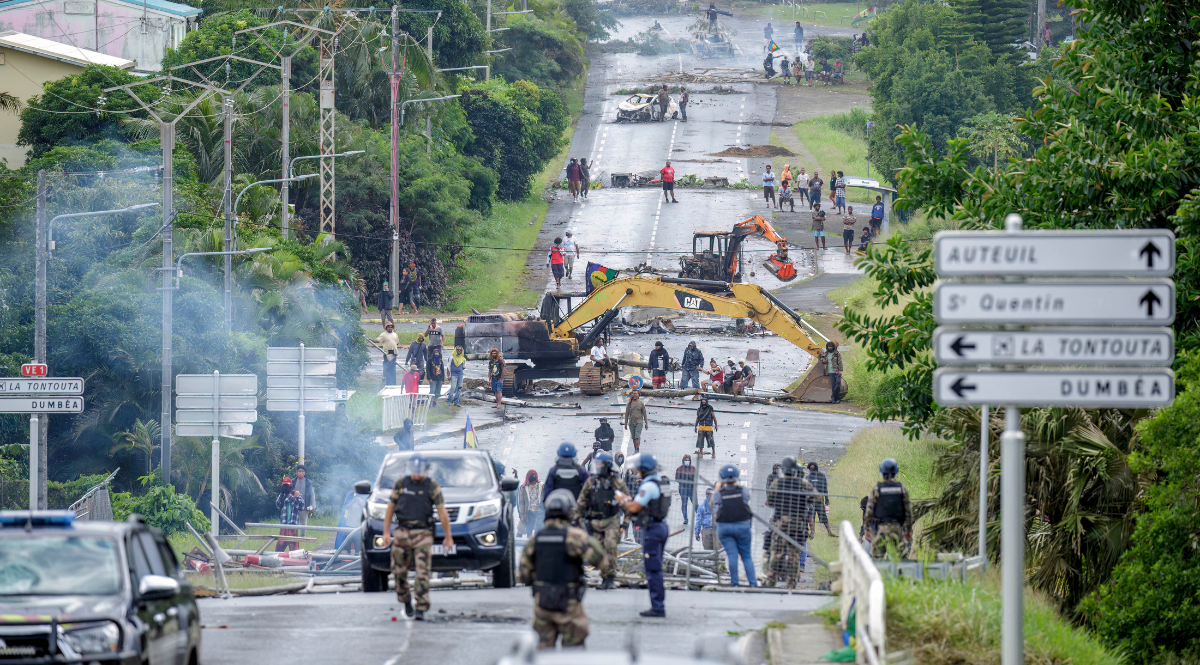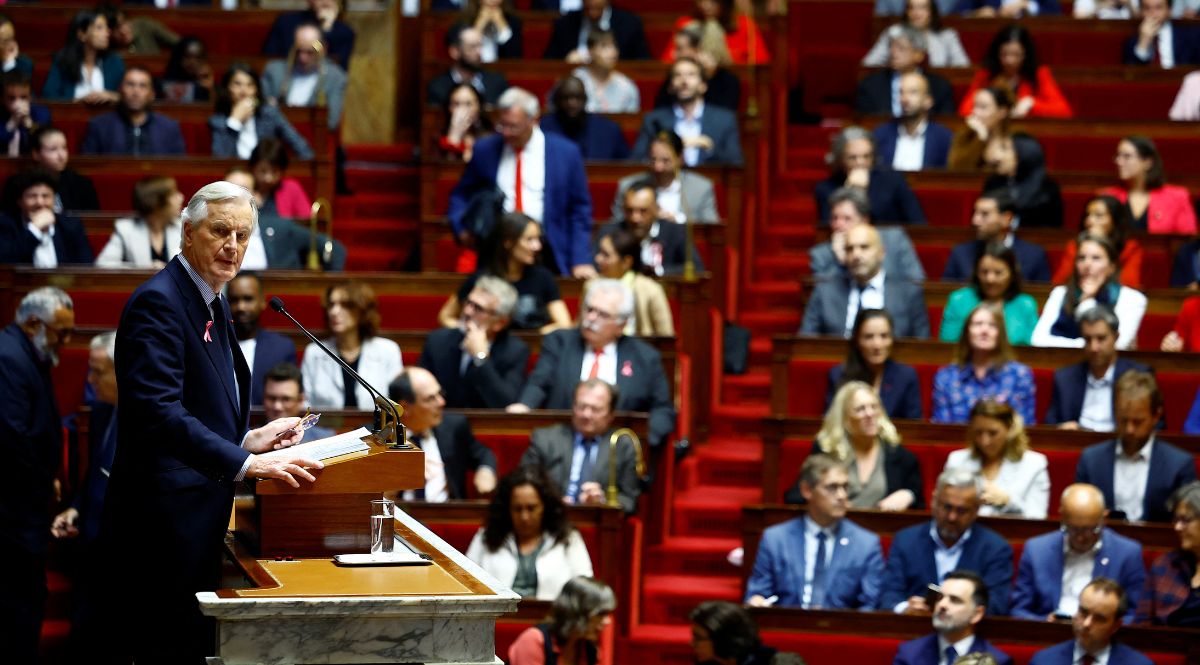French Politics Take a Pro-Moroccan Turn
During a state visit to Rabat on 28–30 October, President Emmanuel Macron unequivocally supported Morocco’s policy towards Western Sahara, namely the region’s autonomy within Morocco. Macron’s statement marks a departure from France’s previously balanced approach in its relations with Morocco and Algeria, the latter supporting Sahrawi separatists. The pro-Moroccan stance benefits French business but may exacerbate the transactional nature of Morocco’s relationship with the EU, undermining France’s efforts to improve ties with Algeria.
.png) Abdelhak Balhaki / Reuters / Forum
Abdelhak Balhaki / Reuters / Forum
Western Sahara was a Spanish colony until 1975 and is now largely controlled by Morocco, which advocates for an autonomy plan for the territory within its statehood. Western Sahara is a central theme in its foreign policy. Algeria challenges Morocco’s claims and supports the Polisario Front’s aspirations for independence. Since the ceasefire that ended the armed conflict between separatists and Moroccan troops that lasted from 1975 to 1991, the United Nations has promoted a peace plan that included a referendum on self-determination. However, this referendum did not take place due to disagreements over the list of eligible voters, among other reasons. In its recent resolutions, the UN Security Council has urged the parties to pursue a mutually acceptable political solution to the conflict. In December 2020, Morocco normalised its relations with Israel as part of the Abraham Accords. In return, U.S. President Donald Trump recognised the legitimacy of Morocco’s territorial claims. Additionally, in 2022, Spanish Prime Minister Pedro Sánchez reaffirmed his support for Morocco’s plan. The EU’s position is consistent with that of the UN. For example, in October of this year, the Court of Justice of the European Union (CJEU) ruled that the European Commission had violated the rights of the people of Western Sahara by signing trade agreements with Morocco in 2019 regarding fisheries and agriculture, which included products from that territory.
Repairing Bilateral Relations
Macron’s visit aimed to restore French-Moroccan relations, which had worsened between 2021 and 2023. In July 2021, France accused Morocco of spying on French politicians and media representatives using Pegasus software. In September 2021, France decided to reduce the number of visas issued to Moroccan and Algerian nationals by half, and by 30% for Tunisian nationals. This decision was justified by the lack of cooperation from these countries regarding readmission. At the end of 2022, France reversed this decision. In recent years, France has also focused on building partnerships with the Gulf states while showing less interest in the Maghreb countries.
Relations between France and Morocco began to improve in 2023. In October, King Mohammed VI appointed a new ambassador to France, filling a post that had been vacant since January. Two weeks earlier, the French ambassador to Morocco presented his letters of credence, nearly a year after his appointment. Additionally, Minister of Economy Bruno Le Maire visited Morocco in October, followed by a visit from the Director General of the French Development Agency in November. In July of this year, Macron indicated a shift in his position on Western Sahara. In a letter to King Mohammed VI, he stated that France recognises “the present and future of Western Sahara as part of Moroccan sovereignty”. Shortly thereafter, Morocco’s National Railway Office awarded a contract to the French engineering firm Egis to assist with the management of a high-speed rail expansion project.
In a speech to the Moroccan parliament, Macron reaffirmed France’s stance and announced his intention to provide diplomatic support to Morocco in international organisations. He indicated that French companies would contribute to the development of Western Sahara by investing in sustainable initiatives that support the local population. Additionally, he announced a new bilateral strategic partnership, which is expected to be signed in 2025 during the anticipated visit of King Mohammed VI to France. Macron aims to boost the involvement of French companies in the Moroccan market, including those in the arms sector. Additionally, given that immigration is a significant issue in French national politics, it is crucial for France to encourage Morocco to improve cooperation on readmission.
Economic Cooperation
In its efforts to improve relations with Morocco, France sees an opportunity to enhance its influence in Africa, particularly in light of the shortcomings of its policy in the Sahel region. President Macron views Morocco as a vital economic intermediary between Europe and Africa, capable of strengthening trade value chains between the two continents. This aligns with Morocco’s ambition to bolster its position in the region, which by liberalising key sectors of the economy wants to attract investment from Arab and African countries.
France is the main foreign investor in Morocco and its second-biggest trading partner, following Spain. Rabat hosts the largest French Chamber of Commerce and Industry located outside of France. During President Macron’s visit, several agreements worth about €10 billion were signed. These agreements primarily focus on the energy transition, interconnections, renewable energy, water management, infrastructure, and transportation. Total Energies has signed a preliminary agreement valued at €2 billion to reserve land for green hydrogen production. The energy group Engie will develop projects in renewable energy, storage, electricity infrastructure, green hydrogen, and desalination. Veolia is set to develop Africa’s largest and the world’s second-largest seawater desalination project. MGH Energy, in partnership with Morocco’s Petrom, aims to produce 500,000 tonnes of renewable synthetic fuels annually. Alstom has been selected as the preferred supplier for a dozen high-speed trains and is also exploring contract opportunities in Morocco. French arms manufacturers are looking to increase their trade in the region. Naval Group aims to sell two Scorpene-class submarines. Negotiations are ongoing for a contract to supply a dozen Caracal helicopters to the Moroccan air force. Additionally, Royal Air Maroc plans to purchase more than 180 aircraft, with Airbus eyeing the opportunity.
Deterioration of Franco-Algerian Relations
France’s acknowledgment of Moroccan sovereignty over Western Sahara conflicts with Algerian interests and complicates the improvement of Franco-Algerian relations, which are already burdened by a colonial past. In the context of the military coups in the Sahel states from 2020 to 2023, President Macron initially viewed an opportunity to collaborate with Algeria on policies aimed at combating terrorism and extremism in the region. Morocco maintains good relations with the U.S. and China, and more recently with Israel, which causes tensions with Algeria. The land border between Algeria and Morocco has been closed since 1994. This closure occurred when Algeria responded to Morocco’s decision to impose a visa requirement following a terrorist attack in Marrakech, which Morocco accused Algeria of being involved in. In August 2021, Algeria severed diplomatic relations with Morocco due to its pro-Israel stance and closed its airspace. Algeria supports the Palestinians and does not recognise Israeli statehood. Following the Hamas attack on Israel on 7 October, the Moroccan government remained cautious in its political statements. Despite pro-Palestinian demonstrations within the country, Morocco is trying to avoid worsening its relations with Israel. The situation has made it increasingly challenging for France to maintain a balance between Morocco and Algeria. In July of this year, Algeria withdrew its ambassador from Paris. The country perceives that the support provided to Morocco by the U.S., Spain, and France indicates that these nations are aligning themselves with a broader alliance that Morocco is creating to politically isolate Algeria in North Africa.
Conclusions
Macron’s visit strengthens the foundation for multifaceted cooperation between France and Morocco in the fields of the energy transition, infrastructure, transport, education, digital technologies, and defence. France’s friendly stance towards Morocco may hinder the prospects of improving relations with Algeria. France’s decision to support Morocco’s policy on the Western Sahara will encourage Morocco to exert greater pressure on other European countries to recognise its sovereignty over the region, particularly in light of Donald Trump’s victory in the U.S. presidential election. This aligns with an increasingly transactional approach in EU-Morocco political relations. The CJEU’s decision complicates this relationship and impacts the interests of both parties, which could influence future agreements in other areas. It also means that the EU cannot treat Western Sahara as part of Morocco in the current situation. However, the EU could help to negotiate an agreement between Morocco and the separatists that would bring economic benefits to both sides. The EU would thus remain in line with the UN position and contribute to its implementation. This would also be beneficial for Poland, given its economic ties with the country. For the EU, in its relations with Morocco, stemming the flow of irregular migration remains crucial. The EU’s complete exclusion of Western Sahara from its agreements with Morocco poses the risk of migration flows being managed unfavourably for the EU.





